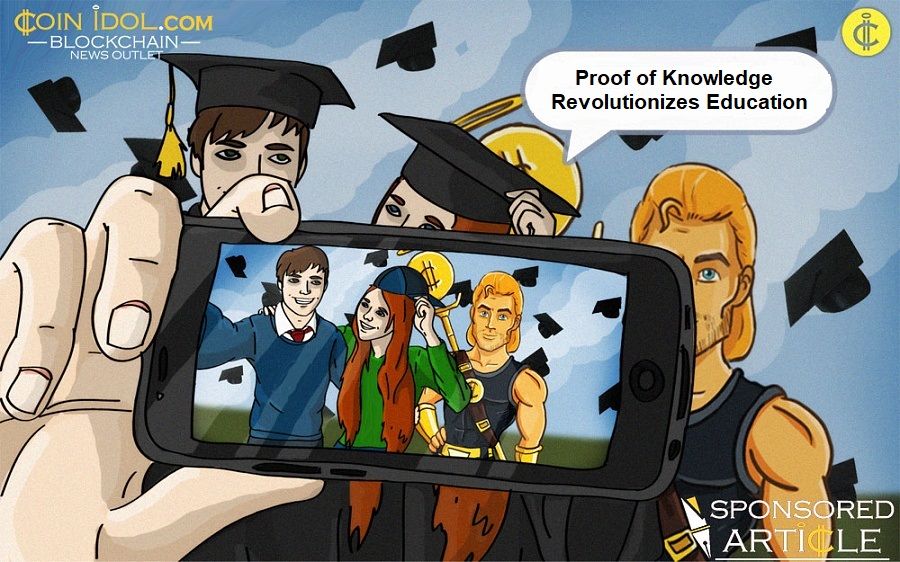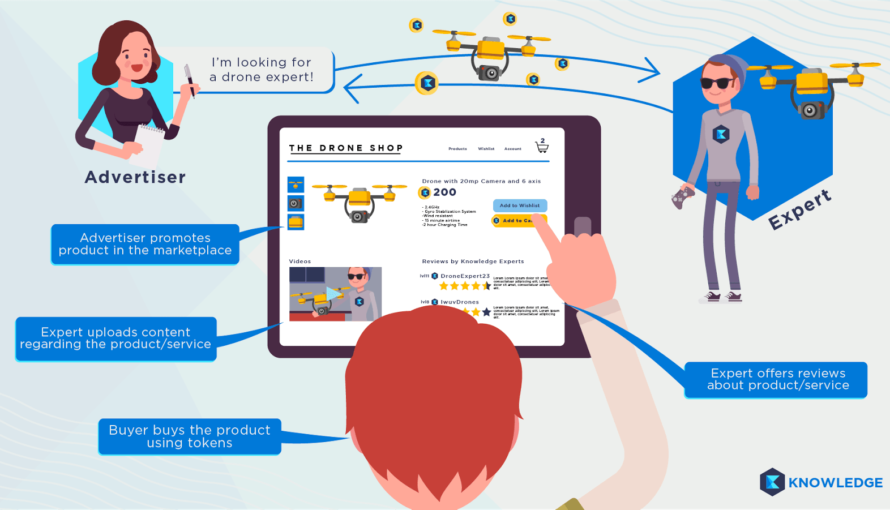Knowledge.io’s Revolutionary Proof of Knowledge and Knowledge-sharing Ecosystem

Knowledge.io is a new blockchain-based knowledge sharing ecosystem that is changing the way knowledge is shared through their incentivization program. Valuing knowledge and rating it has always been a subjective matter, and Knowledge.io aims to change the status quo with their revolutionary algorithm. But how does it try to achieve the solution to this millennia-old problem? We will look at their groundbreaking platform in detail.
Issues with Provision of Knowledge
So far, formal education has been the absolute for determining the value of knowledge. We all have been a part of the system from pre-school and the knowledge we acquire is rated on pieces of papers we call degrees, certificates and diplomas and the institution with which this piece of paper is gained from, like Harvard, Princeton, Cambridge, etc. The more prestigious your school, the more value is imparted to your education and thus knowledge. As you can guess from the dynamics of this system, there are several acute shortfalls associated with it.
The main problem is that the there is no way of verifying that the knowledge has actually been transferred to the degree-holding individual and there is wide-scale discretion of the issuing authorities that has no assurity of working. Are our pre-conceived assumptions actually true about the quality of education gained from a certain establishment? Was the degree gained with a lot of practical knowledge or not, and is that applicable? Many factors affect the situation.
Knowledge.io’s Proof of Knowledge and Knowledge Score
Knowledge.io’s solution to the problem, though not perfect, is centered less on academic factors and more on practical factors. Users upload knowledge in different forms and they validate each other’s knowledge and expertise through gamified learning and expertise verification. This approach is decentralized keeping in line with the spirit of blockchain and consensus.
The technology assigns value to each user on the new platform. It objectively verifies and validates the knowledge level of each participant. So, instead of having a centralized assessment system, the verification and rating of knowledge is widely spread into the entire user database. The platform has a wide-ranging 10 million questions allowed on a single topic’s spectrum, showing breadth of testing and validity.
With the help of blockchain, the user’s knowledge and learning is independently verified and recorded permanently for the rest of their lives on the platform and no one can take it down or alter it in any way. This will enable the future generation of learners to come forward with practical, tangible knowledge that will be rated as the evidence of their knowledge.

Knowledge.io and Knowledge Tokens
At the center of the knowledge.io platform is a gamified interaction between learners and creators of knowledge. The creators upload knowledge and are incentivized by knowledge tokens in lieu of their provision of knowledge. These knowledge tokens come from the purses of learners who also help in rating and verifying the knowledge so it is a two-way street rather than a one-way approach used by contemporary systems.
This model of incentivization will help propagation of knowledge and expertise in the platform as everybody has an incentive to work on the system that rewards the rightful owner of the information. To support its goal of combining blockchain innovation with knowledge sharing, Knowledge.io will begin its crowdsale campaign with a pre-sale on 15 January, 2018, about two months from now.
To learn more about Knowledge.io, visit the Website at - https://knowledge.io/
Disclaimer. This article is paid and provided by a third-party source and should not be viewed as an endorsement by CoinIdol. Readers should do their own research before investing funds in any company. CoinIdol shall not be responsible or liable, directly or indirectly, for any damage or loss caused or alleged to be caused by or in connection with the use of or reliance on any such content, goods or services mentioned in this article.
Coin expert
Coin expert
Price
Coin expert

(0 comments)